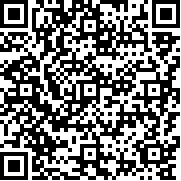Should I take some anti-inflammatory medication after tooth extraction?
Patients often consult whether they should take antibiotics after just having their teeth extracted. Some patients believe that tooth extraction is a minor surgery with a low risk of infection, and there is no need to take anti-inflammatory drugs; Some patients believe that minor surgery is also surgery, and there is a risk of infection if there is wound bleeding. It is necessary to use anti-inflammatory drugs to prevent infection and avoid bacterial damage to the body. Which viewpoint is correct? Let the pharmacist answer for you.
It is not uncommon for tooth extraction to cause wound infection
Firstly, it should be noted that tooth extraction, like other surgical procedures, can cause varying degrees of damage to local soft and hard tissues, resulting in reactions such as bleeding, swelling, and pain. It may also trigger varying degrees of systemic reactions and may exacerbate certain systemic diseases or induce serious systemic complications. Wound infection is one of the common complications of tooth extraction, often caused by chronic infections of foreign objects and residual tissues such as dental fragments, bone fragments, dental calculus, etc.
So, will infection necessarily occur after tooth extraction? The answer is negative. Whether there will be infection and whether to use antibiotics actually depends on the actual situation of the tooth extraction surgery, and cannot be generalized.
If it is the extraction of healthy teeth, such as retained deciduous teeth in children or meiotic tooth extraction in orthodontic treatment, the extraction surgery process is smooth, the trauma is small, and the surgery time is not long, so anti-inflammatory drugs can be avoided. After the surgery, pay attention to diet and oral health.
In these situations, antibiotics cannot be saved
When the following situations occur, it is still necessary to take anti-inflammatory drugs:
If the extracted teeth are impacted or supernumerary, it is necessary to cut open the gums, remove a small amount of alveolar bone, and then suture the wound;
Patients with other diseases, such as blood disease, diabetes, and immune deficiency, are advised to take anti-inflammatory drugs to prevent wound infection;
When there are only residual roots and crowns of teeth, frequent redness and bleeding of gums, and chronic inflammation at the root tip causing alveolar bone adhesion, bacteria may enter the bloodstream during tooth extraction, leading to the spread of inflammation.
In addition, do not eat anything within 2 hours after tooth extraction. On the same day, eat soft, liquid or semi liquid food, preferably warm and cold. Do not eat hard or overheated food, chew on the other side. Do not brush your teeth or rinse your mouth on the same day, do not spit too much to prevent bleeding or infection, avoid vigorous exercise, and speak less. Do not repeatedly suck or lick the wound to promote faster healing and reduce the risk of inflammation.
Select appropriate drugs based on the risk of infection
Generally, oral cephalosporin antibiotics such as cefuroxime axetil, cefuroxime axetil, and cefaclor can be taken to prevent infection after tooth extraction. According to the risk of infection, metronidazole or metronidazole can be used in combination. Patients who are allergic to cephalosporin drugs can use azithromycin, while patients who cannot tolerate metronidazole or metronidazole can use metronidazole. The specific usage and dosage are as follows:
Cefotaxime 0.5g, twice a day;
Cefuroxime axetil 0.25g, twice a day;
Cefaclor 0.25g, 3 times a day;
Azithromycin, first dose 0.5g, then 0.25g, once a day, or 0.5g each time, once a day;
Metronidazole 0.2g, 3 times a day;
First 2g of tinidazole, then 1g once a day, or 0.5g twice a day;
0.5g metronidazole, twice a day.
Generally, antibiotics are used for 3 to 5 days. If there is no redness, swelling or pain in the wound, antibiotics can be discontinued. However, it is important to pay attention to diet and oral hygiene, and avoid eating spicy foods or smoking and drinking alcohol, as this can easily cause inflammation.
Wen/Shen Guoliang (Beijing Stomatological Hospital)
Source: Beijing Youth Daily


